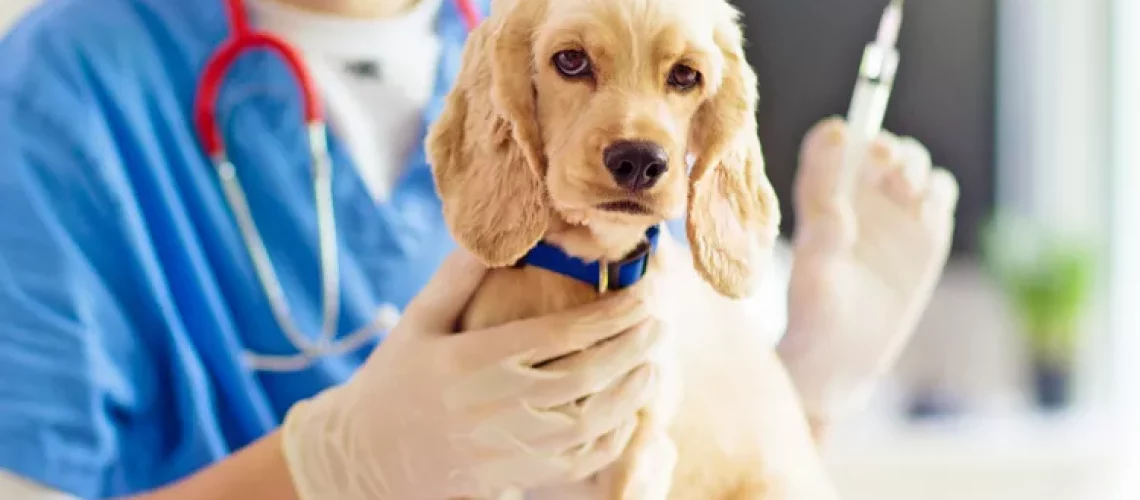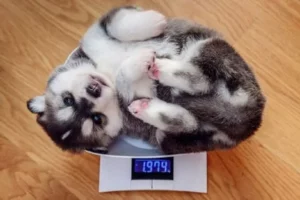Numerous pet-related illnesses can be avoided with vaccinations. It has long been believed that one of the simplest methods to ensure that your pet has a long and healthy life is to vaccinate him. There are multiple kinds and mixes of vaccines in addition to distinct vaccines for various diseases. Every pet’s vaccination procedure includes dangers and benefits that must be assessed in light of his lifestyle and general health. A vaccination schedule that will offer your specific animal the safest and best protection can be decided by your veterinarian.
Why do we need vaccines?
Vaccines are medicines created to boost a pet’s immune system and get it ready to fight off future diseases from pathogens. Vaccines can reduce the severity of future infections and, in certain cases, prevent them entirely. Veterinarians can now utilize a range of vaccines. Using a syringe and needle, some vaccines are injected into the animal’s body, while others are given topically or through the animal’s nose.
How important is vaccination?
Yes! Pets should be vaccinated to protect them from a variety of very dangerous and deadly diseases. The extensive use of immunizations over the past century has, according to experts, saved millions of animals from illness and death. In addition to being extremely expensive, several of these diseases can be fatal even with treatment if an unvaccinated pet contracts them. Vaccination is still strongly advised despite the fact that several once-common diseases have now become uncommon since these dangerous disease agents are still present in the environment.
Vaccinating pets can also prevent some zoonotic diseases, such as illnesses shared between animals and people. For instance, rabies, a dangerous and frequently fatal disease, can be transmitted from infected animals to humans. You are safeguarding not only your pet but also your family by vaccinating them against rabies.
How effective is vaccination in preventing disease?
The majority of pets can avoid future illnesses with vaccinations. Rarely, but it’s conceivable, vaccinated pets who don’t build enough protection against the disease could get sick if exposed to it.
To provide a baby with the best chance of avoiding disease in the first few months of life, any gaps in protection should be as brief as possible. It’s vital to keep in mind that, despite periodic breakdowns in immunity, the majority of well-immunized animals are capable of successfully fending off disease, underscoring the significance of vaccinations in your pet’s preventive healthcare regimen.
What are the risks associated with vaccination?
The potential risks of any treatment should be compared to the advantages of shielding your pet from potentially fatal illnesses. Vaccinations are generally well tolerated by most pets. The majority of adverse reactions are mild and temporary, with symptoms like fever, lethargy, and decreased appetite. Additionally, pets may have a little swelling or brief pain at the injection site. Although the majority of side responses go away in a day or two, your vet should be consulted if there is any extreme or persistent pain, swelling, or listlessness.
“Rarely, more serious adverse reactions can occur.”
An allergic reaction may occur within minutes or hours of vaccination and may lead to repeated vomiting or diarrhea, body itchiness, swelling of the face or legs, difficulty breathing, or collapse.”
If any of these symptoms appear, call your veterinarian instantly. A fatal allergic reaction might happen in extremely rare circumstances. Injection site tumors (also known as sarcomas) in cats, which can appear weeks or months after vaccination, are among other unusual but severe side responses. The best advice is to always inform your veterinarian of any problems you observe in your pet following a vaccination.
Is it necessary to vaccinate puppies and kittens?
Due to immature immune systems, young pups, and kittens are particularly vulnerable to infectious illnesses. While nursing, the mother’s milk contains antibodies (special proteins) that give some immunity to diseases. However, these maternal antibodies do not last for long, and there may be gaps in protection as the milk antibodies diminish and the puppies’ or kittens’ immune system is not yet capable of fighting off infection. In many cases, the first dose of a vaccination serves to prepare the animal’s immune system against the virus or bacteria, while the following doses aid in further stimulating the immune system to develop the antibodies required to protect an animal from particular diseases.
A sequence of immunizations is planned, often spaced 3–4 weeks apart, to minimize these gaps in protection and give the best protection against disease in the first few months of life. The most recent vaccination in the series is typically given to puppies and kittens when they are around 4 months old, but a veterinarian may occasionally adjust this schedule based on the risk factors of a specific animal. Remember that an incomplete sequence of vaccines may result in insufficient protection, leaving puppies and kittens vulnerable to infection.
In most cases, vaccinations have no negative effects on pets. Vaccine responses can range from minor and transient to severe and demanding rapid veterinary attention. Clinical signs consist of:
- Fever
- Sluggishness
- Reduces appetite.
- Hives or swelling of the face
- Vomiting
- Diarrhea
- Around the injection site, there may be pain, swelling, redness, scabbing, or hair loss.
- Lameness
- Collapse
- Breathing issues
Do my pets need any vaccinations?
Not all pets need to receive all offered vaccinations. Most pets in a certain area should have “core” vaccinations since they offer protection from the diseases that are most prevalent there. Individual pets with particular needs only receive “Non-Core” vaccinations. When designing a vaccination schedule for your pet’s lifelong protection, your veterinarian will take into account the dangers of exposure to certain diseases that can be avoided.
In order to reduce your pet’s chance of contracting certain diseases, discuss your pet’s lifestyle with your veterinarian, including any anticipated travel to other areas and/or interaction with other animals (such as exposure at kennels, obedience lessons, shows, and parks). Make sure your veterinarian is aware of any previous vaccination reactions in elderly pets.
What is the ideal number of vaccinations for my pet?
For a long time, it was believed that dogs and cats should receive a series of immunizations annually. Many vaccines induce immunity that lasts well beyond a year, while others may not. It is becoming increasingly clear that some vaccines induce immunity that lasts far longer than a year, whereas others may not. Therefore, a single vaccine plan won’t be effective for all pets. Your veterinarian will choose the immunization regimen that is best for your pet.




